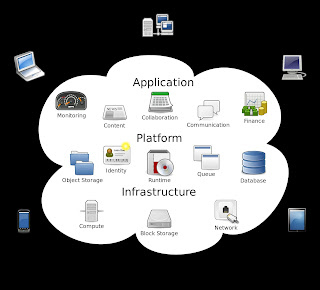Introduction
In the age of clingy budgets, many industries, from the level of enterprise to minor and mediocre sized business, are considering well-organized and new techniques to achieve their web hosting requirements. The hosting settings are varying these days and therefore many are looking outside the old setups, and into the potentials of cloud hosting. Cloud Hosting has proven to be very trustworthy, easily accessible and cheap hosting solution that is different from the old-style solutions of hosting in terms of many features. Following is a comparison of cloud computing and google shared server that will make the difference more clear for the user.Cloud computing comparison with Google shared server
Google shared hosting is among most widespread servers of the world that is suitable even for the tightest financial plan. But making use of a shared hosting solution also implies to the fact that the operator has to share his private server capitals with other operators working at the same time. If a web page is presented on a Google shared hosting server, all the information and the apps the user is consuming, will be accommodated with the apps of all other operators on the same server. Similarly, a web page will share the similar Google server resources as all websites present on the server i.e. CPU, Memory, disc space and bandwidth. The servers working on Google shared hosting is loaded abundantly all the time so if one web page burdens the Google server, all operators will undergo low speed or downtime interruptions. Another main issue is the partial resources at the disposal. Sharing a Google server would mean to share the resources of the system with other workers on one corporeal machine and consequently every user will have some limitations on their facilities. For instance, if any of the operators on the Google shared server practices a lot of traffic, CPU cycles and email transportation then all the people on the same machine are expected to experience poor performance of shared hosting.
Cloud hosting on the other hand provides a level of scalability that shared hosting cannot do. Cloud hosting corporations give computer-generated space based on demand and need of a business. Instead of paying money for a normal quantity of space for a lone server, the operator has to pay for what they really use. With the help of cloud hosting, the burden is well-adjusted through a group of multiple servers. The data and apps kept on those servers are reflected throughout the whole group, which means that if one server crashes, there will be no missing information or interruption of the server availability to the other users. Due to this fact, cloud hosting is now considered more flexible and strong. Cloud hosting establishments give the infrastructure-as-a-Service i.e. IaaS. They line, operate, and uphold all of the essential hardware, and the client give money only for the resources they have used, like how they pay their utility bills. With cloud hosting, the IT sectors do not have to finance in-house server hardware and consumers do not have to pay up-front for additional storage space or processing volume that they have not used. Cloud hosting is also more rapidly accessible than outdated hosting styles so if an app or web page gets more or less stream of traffic, the cloud host scales up and down spontaneously. With cloud hosting, the user has no need to add or eliminate server volume manually done in shared hosting



